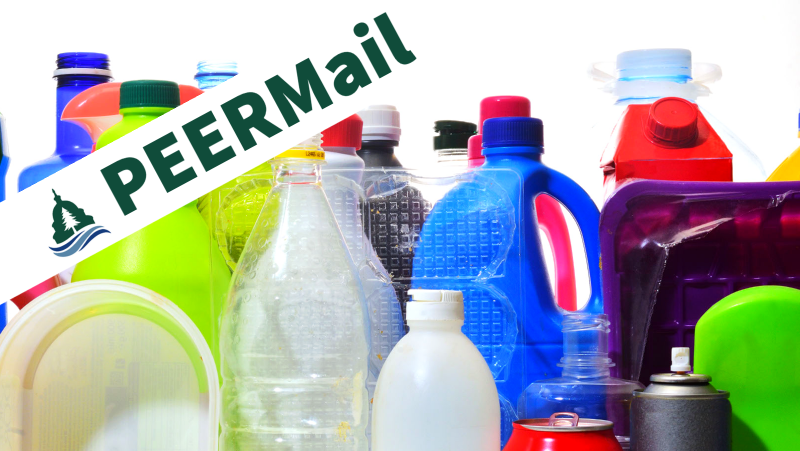We Are Suing to Prevent Further PFAS Contamination
 Today PEER and the Center for Environmental Health filed a lawsuit against Inhance Technologies USA of Houston, Texas, for generating toxic PFAS or “forever chemicals” when fluorinating plastic containers, in violation of federal law.
Today PEER and the Center for Environmental Health filed a lawsuit against Inhance Technologies USA of Houston, Texas, for generating toxic PFAS or “forever chemicals” when fluorinating plastic containers, in violation of federal law.
Tens of millions of plastic containers, used in vast sectors of the economy, undergo fluorination before they are filled with products and distributed to consumers and businesses. Fluorination provides a chemical barrier to a pre-produced container, usually plastic. The PFAS detected in fluorinated containers include perfluorooctanoic acid (PFOA), a toxic substance found in the blood of nearly all Americans.
Handling or using fluorinated containers could be a significant pathway for unsafe human exposure to PFOA and other PFAS.
It was PEER’s work exposing PFAS in pesticides that led to the discovery that these containers contained PFAS. The U.S. Environmental Protection Agency (EPA) has known about this problem for over two years and has failed to take meaningful steps to stop this practice.
In recent years, a flood of public employees have come to us with concerns about the growing toxic crisis of PFAS contamination. Just last week, I learned that my own town’s well water has high levels of PFAS, and two of those wells are now shut down.
On all fronts, EPA is moving too slowly to stop this crisis. That is why PEER will continue to work with our partners inside and outside of government to aggressively address this growing problem.
— Tim Whitehouse, PEER Executive Director
Protecting Minnesota Wildlife
Last week, PEER wrote U.S. Fish and Wildlife Service (FWS) Director Martha Williams to request that the FWS continue to withhold federal funding for Minnesota logging practices that destroy sensitive wildlife habitat. Minnesota DNR has announced an “agreement” to address FWS’ concerns that does little to address DNR’s destructive timber program. Read More»
Protecting the Public Record
PEER is appealing a decision by the U.S. Environmental Protection Agency (EPA) stating that it is unable to save text messages used by managers on EPA phones. This comes on the heels of an EPA directive to its staff to “wipe” their official mobile devices before leaving the agency or receiving new phones and during an Inspector General investigation into EPA’s new chemicals program. Read More»


